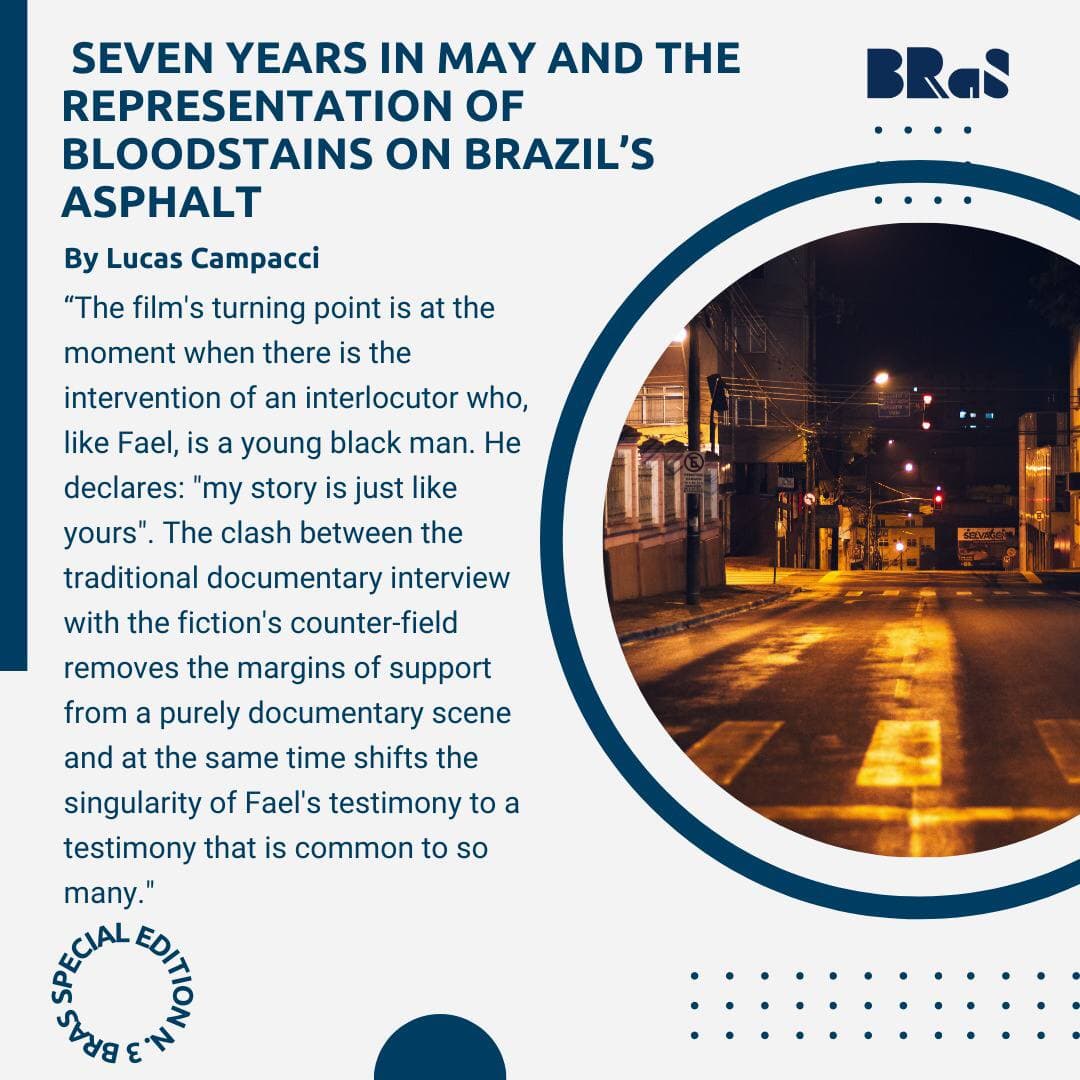by Deanivea Mendes Felix*
Reviewed and edited by Anna Paula Bennech and Giovanna Imbernon
Organized by Flavia Batista da Silva
The COVID-19 pandemic can be classified as the most significant health crisis in the last hundred years (Paula dos Reis et al., 2020). Some international organizations have been predicting this event for decades; this pandemic is not the first one and will not be the last global health crisis (De Freitas Lima Ventura and Costa Bueno, 2021). Still, most of the countries are struggling to deal with it. For the Brazilian democracy, the pandemic only escalated the debilitation of the yet unstable democratic regime.
Jair Bolsonaro, the current Brazilian president, contributed to this scenario by attacking the government’s transparency, with denialism (denying politics and denialism as a policy) and not considering the situation of vulnerable groups during the pandemic.
First, his electoral campaign’s strategy was to deny politics to distance himself from the previous political scenario. Then, in the pandemic context, a new strategy can be seen: Denialism as a policy, allied to his previous approach, culminating in the trivialization of deaths and separation between “valuable” and “disposable” lives (Duarte and César, 2020). One of the most powerful attacks on democracy is the intentional omission of the Executive Power in solving public problems, classified by the authors Linhares and Tormin (2020) as “Executive Underreach.” In a health emergency, much is expected from a president, and the population’s survival depends directly on public policies. Even though the SARS-COV-2 virus does not show contagious selectivity, the impacts of the pandemic and democratic crisis will be felt differently depending on race and class. The choice of public policies determines the (lack of) importance of lives to the current government (Linhares and Tormin, 2020; Estrela et al., 2020).
In the 2018 presidential elections, the candidates faced a scenario of democratic institutions’ erosion, where the Brazilian population was disappointed with the main parties running for the presidency since the mid-1990s. Jair Bolsonaro then launched himself as an anti-system outsider, despite having been part of that system for nearly thirty years as a member of the congress. He tried to disengage his image from the system, denying the broken policy he helped to build (Duarte and César, 2020). In a pandemic context, the search for quick and effective solutions to relieve the damage to the population means that many expectations are placed on the Executive Branch. However, access to unlimited powers under the alibi of solving the health crisis is dangerous territory.
Transparency of political acts must be a central element to a healthy democracy (Linhares and Tormin, 2020). During the pandemic, Bolsonaro is not concerned with fighting the virus. Instead, he politicized the pandemic, classifying it as a “little flu” (BBC Brasil, 2020). In the absence of coherent public health policies, denialism became the political strategy for managing the pandemic and the population’s living conditions (Duarte and César, 2020). Combining denial with lack of transparency, the Brazilian government approved measures that changed the ‘Access to Information Law,’ such as the provisional measure 928/2020, which aimed to suspend the response time during the pandemic. Thus, affecting the population’s access to government data. There were also periods of official data omission about deaths and infections rates, known as “blackouts.” It happened in June 2020 and in November, on the eve of the second round of the municipal elections (Nexo, 2021), directly affecting the reliability of these data. The right to information gets even more relevant contours due to its intersection with the constitutional right to health (Linhares and Tormin, 2020). Without accurate information, public policies cannot correctly reach the people.
For example, the understanding that Covid-19 does not differentiate people, hence a “democratic disease” that would affect everyone equally. Therefore, there would be no need for different policies to fight the pandemic (De Oliveira et al., 2020). However, the way the virus arrived in Brazil shows us how perceiving equality among those affected is wrong: on the one hand, the first affected were the upper classes, who arrived from trips abroad. On the other hand, the most affected victims were professionals directly linked to these people.
In an emblematic case in Rio de Janeiro, COVID-19’s first fatal victim was a house cleaner who worked in Leblon, an upscale neighborhood, and got COVID-19 from her employer, who had returned from a trip to Italy (Istoé, 2020). There were countless cases in which domestic workers, app drivers, and the delivery staff were infected during working hours in the periphery, as these people were unable to work remotely.
The class approach is also closely linked to race in Brazil. Data from 2018 from the Brazilian Institute of Geography and Statistics (IBGE, in Portuguese) shows that 75% of people living in extreme poverty are self-declared as black or brown (Estrela et al., 2020). This disparity can also be observed in the proportion of hospitalizations and deaths. Initially, the percentage of hospitalization and death of white people was higher when compared to black people. As time went by, the situation changed, showing a low proportion of hospitalization of black people compared to the number of deaths (G1, 2020). This data also indicates inequalities in access to health services and greater social vulnerability among black and brown people (De Oliveira et al., 2020). Bad living and income conditions in Brazil are also correlated with race, pointing to a large social group unable to practice social distancing (Galindo and Pedreira Júnior, 2021). The relationship between the lockdown required as a security measure and precarious housing accelerated the infection rates among the low-income population due to the difficulty in achieving intra-household distance. On the subject, once again demonstrating his denial strategy, Bolsonaro called “Idiots” people who stay at home while obeying restrictive measures to prevent the dissemination of the coronavirus (Folha de S.Paulo, 2021).
The lack of transparency, the denial, and the trivialization of deaths led the country to reach, on June 19th, 2021, the sad mark of 500 thousand deaths due to Covid-19. Brazil is in a scenario of democratic erosion, marked by misinformation, intense political polarization, degradation of institutions, and expansion of the Executive Power. During the current pandemic’s management, there is no doubt there is an executive underreach, a willful omission of constitutional obligations attributed to the president (Linhares and Tormin, 2020). A very distinctive feature of Bolsonarism – the extreme right-wing political phenomenon that emerged with the rise of Jair Bolsonaro – is defining which lives matter and which ones matter little, following a distorted meritocratic ideal (Duarte and César, 2020). President Bolsonaro seems not to care about losing lives during the pandemic, seeing them as expendable. Already knowing that his government’s actions resulted in the death of half a million citizens, he briefly lamented the deaths and then returned to defending the use of drugs proven to be ineffective, thus continuing his denial strategy (G1, 2021).
References
BBC Brasil. 2020. “2 momentos em que Bolsonaro chamou covid-19 de ‘gripezinha’, o que agora nega” 11/27/2020. Available at: https://www.bbc.com/portuguese/brasil-55107536 .
Duarte, André de Macedo, and Maria Rita de Assis César. 2020. “Denial of Politics and Denialism as a Policy: Pandemic and Democracy.” Educacao and Realidade 45 (4): 1–22. https://doi.org/10.1590/2175-6236109146.
Estrela, Fernanda Matheus, Caroline Fernandes Soares E Soares, Moniky Araújo da Cruz, Andrey Ferreira da Silva, Jemima Raquel Lopes Santos, Tânia Maria de Oliveira Moreira, Adriana Braitt Lima, and Márcia Gomes Silva. 2020. “Covid-19 Pandemic: Reflecting Vulnerabilities in the Light of Gender, Race and Class.” Ciencia e Saude Coletiva 25 (9): 3431–36. https://doi.org/10.1590/1413-81232020259.14052020.
Folha de S.Paulo. 2021. “Relembre o que Bolsonaro já disse sobre a pandemia, de gripezinha e país de maricas a frescura e mimimi” 03/05/2021. Available at: https://www1.folha.uol.com.br/poder/2021/03/relembre-o-que-bolsonaro-ja-disse-sobre-a-pandemia-de-gripezinha-e-pais-de-maricas-a-frescura-e-mimimi.shtml.
Freitas Lima Ventura, Deisy De, and Flávia Thedim Costa Bueno. 2021. “De Líder a Paria de La Salud Global: Brasil Como Laboratorio Del ‘Neoliberalismo Epidemiológico’ Ante La Covid-19.” Foro Internacional, 427–67. https://doi.org/10.24201/fi.v61i2.2835.
G1. 2020. “Coronavírus é mais letal entre negros no Brasil, apontam dados do Ministério da Saúde” 04/11/2020. Available at: https://g1.globo.com/bemestar/coronavirus/noticia/2020/04/11/coronavirus-e-mais-letal-entre-negros-no-brasil-apontam-dados-do-ministerio-da-saude.ghtml.
G1. 2021. “Dois dias depois, Bolsonaro diz que lamenta 500 mil mortes por Covid” 06/21/2021. Available at: https://g1.globo.com/sp/vale-do-paraiba-regiao/noticia/2021/06/21/bolsonaro-500-mil-mortes-covid.ghtml.
Galindo, Ernesto Pereira, and Jorge Ubirajara Pedreira Júnior. 2021. “A Cor Da Moradia: Apontamentos Sobre Raça, Habitação e Pandemia.” Boletim de Análise Político-Institucional, no. 26 (March): 73–83. https://doi.org/10.38116/bapi26art8.
Istoé. 2020. “ Primeira vítima do RJ era doméstica e pegou coronavírus da patroa no Leblon” 03/20/2020. Available at: https://istoe.com.br/primeira-vitima-do-rj-era-domestica-e-pegou-coronavirus-da-patroa-no-leblon/.
Linhares, Emanuel, and Mariana Tormin. 2020. “Pandemia e Erosão Da Democracia Constitucional: Uma Análise Dos Ataques à Transparência No Brasil. Brasília. https://orcid.org/0000-0002-7500-0705.
Nexo. 2021. “De questionamentos a apagões: o governo e os dados da covid” 03/28/2021. Available at: https://www.nexojornal.com.br/expresso/2021/03/28/De-questionamentos-a-apag%C3%B5es-o-governo-e-os-dados-da-covid.
Oliveira, Roberta Gondim De, Ana Paula Da Cunha, Ana Giselle Dos Santos Gadelha, Christiane Goulart Carpio, Rachel Barros De Oliveira, and Roseane Maria Corrêa. 2020. “Racial Inequalities and Death on the Horizon: Covid-19 and Structural Racism.” Cadernos de Saude Publica 36 (9). https://doi.org/10.1590/0102-311X00150120.
Paula dos Reis, Ana, Emanuelle Freitas Góes, Flávia Bulegon Pilecco, Maria da Conceição Chagas de Almeida, Luisa Maria Diele-Viegas, Greice Maria de Souza Menezes, and Estela Maria Leão Aquino. 2020. “Desigualdades de Gênero e Raça Na Pandemia de COVID-19: Implicações Para o Controle No Brasil.” Scielo Preprints, 27. https://doi.org/10.1590/0103-11042020E423.







